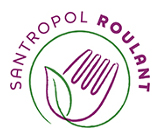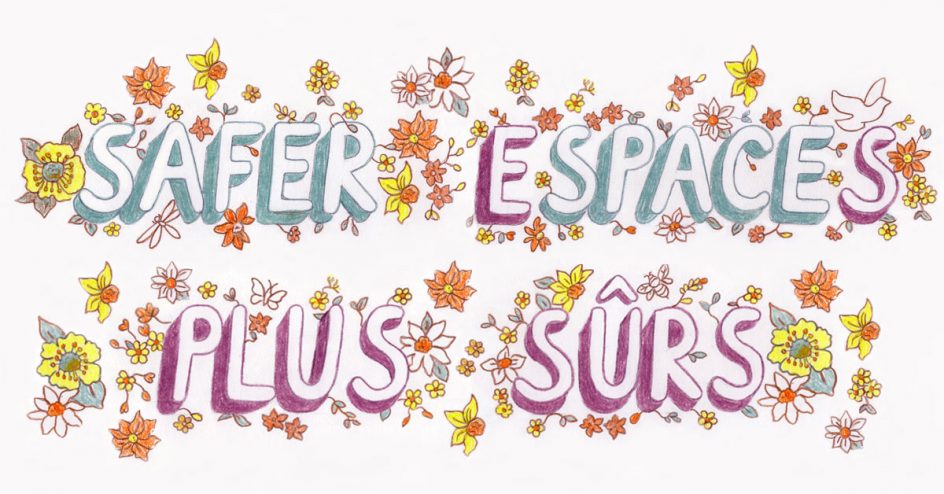Have you ever felt undermined, insulted or generally belittled from a conversation in a very subtle way? Or perhaps someone has made you feel as though your words hurt them, even though your intentions were good? If so, you’re probably dealing with microaggressions, which are “the kinds of remarks, questions, or actions that are painful because they have to do with a person’s membership in a group that’s discriminated against or subject to stereotypes”. What makes them so difficult on the receiving end is that they happen under the radar and very regularly. They are part of the general makeup of everyday sexism, racism, ableism, fatphobia, ageism and so many more intersecting discriminations against the identities that make up a human being. You may have experienced them in the course of your life, continue to experience them, or unknowingly committed them.
At this point, you may be asking: “The Roulant is such a welcoming, kindhearted environment. Why bring this up here?” The short answer is that acknowledging and preventing microaggressions is part of our responsibility to encourage a safer space for all of our members (clients, volunteers, staff, donors, and friends). Another answer is that Santropol Roulant, an intergenerational community that is ‘home’ to many different people from many backgrounds, generations, cultures, and lifestyles, needs collective work to make sure that everyone is treated as the gifts that they are to the organization. With a community like ours, it’s possible that, sometimes, what might sound appropriate to say might leave someone feeling excluded or diminished.
By checking our behaviour, and asking ourselves what the consequences could be of making a comment, we are doing our part. Marginalized people do a lot of work to manage their emotions while experiencing the pain that microaggressions cause, and are often met with negative reactions when they try to speak up. Think about all the times that you haven’t spoken up after witnessing a comment you see as a joke directed at someone else. You know the person didn’t mean any harm by making the comment and it can be uncomfortable to monitor others, especially when we understand where they’re coming from. This is an important moment to notice that we’re doing the work to understand the person committing a microaggression, not the person experiencing it.
Examples
To better understand how microaggressions look in an everyday conversation and how to respond to them, let’s look at a couple examples. We’ve added some ways to convey the same feeling in a safer, more respectful way too:
A volunteer says to another: “Hey, have you lost some weight? You look so much healthier!”
While this is intended as a compliment, it’s important to be careful when commenting on other people’s bodies, as we often reveal our assumptions about what a healthy body looks like. Body image is an extremely sensitive subject for many people, and comments like these are often unwanted, poorly perceived and can even impact people in real and unpleasant ways.
Solution: “Something seems a bit different about you since the last time I saw you – what have you been up to lately?”
A person addressing another in a public space: “Excuse me, ma’am, do you have the time?”
As it so happens, some people in the room may not identify as either a woman or man, and could feel uncomfortable when their gender is assumed. Once again, this is a commonly used phrase not meant to cause offence. By speaking in a non-gendered way, we can make sure that everyone feels included and respected.
Solution: instead of addressing people as “ma’am,” “sir,” “Miss,” or “Mr,” the question could simply be reworded to: “Excuse me, do you have the time?”
Of course, with people we know, it’s always better to ask for the pronouns they use, but for strangers this does the trick!
“Where are you from? Where were you born?”
We live in a diverse city, it’s understandable to be curious about where people are from. In itself, asking someone where they are from is not harmful, when it concerns location and not ethnicity. It becomes especially harmful when the given response is not accepted (e.g. – the addition of “no but, where are you really from”). The problem is, this question is overwhelmingly asked to people of colour, often only because of their skin colour. By asking someone what their ethnicity is (a different way to phrase the same question), it’s subtly pointing out that there’s a difference between you and them, that is being highlighted with this question. There’s an assumption about someone’s identity, implying that they couldn’t possibly be “from here” if their skin is a certain colour. It can make a person feel like an outsider when they are trying to connect with people.
Solution: “So, are you from the city?” → this is less about ethnicity, and more about location. If that’s what you’re trying to ask in the first place, there you go!
Final Note
Microaggressions are tricky to monitor, because they require a lot of self-reflection and consideration. We hope that this information will make you feel less alone if you’re experiencing them in your life, and give you some food for thought if this is the first time you’re reading about them. Microaggressions are valid, and the pain adds up over time. You’re not too sensitive for feeling hurt or excluded. It’s important to be kind and support each other in dealing with them, so we can continue to collectively make the Roulant as safe as possible.
Contact Us
Please don’t hesitate to contact the Safer Space Committee if you want to discuss this more. We’re happy to answer your questions or concerns.

